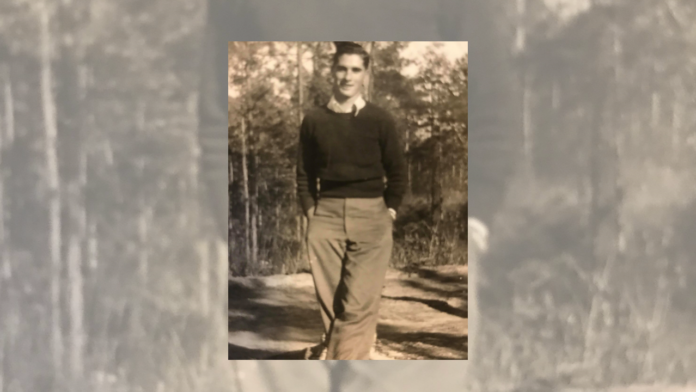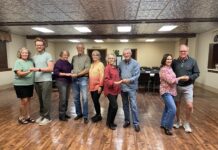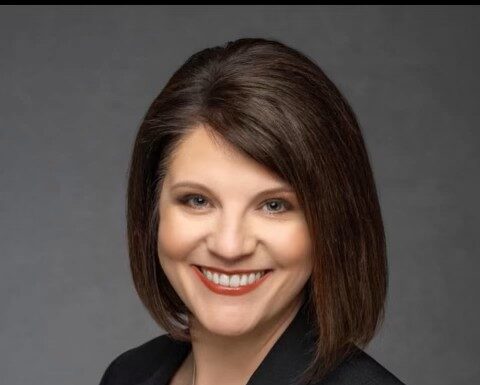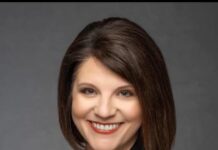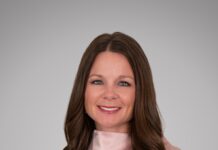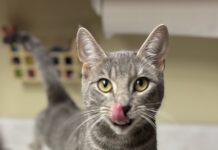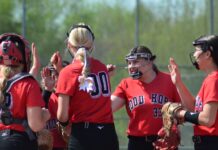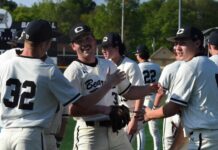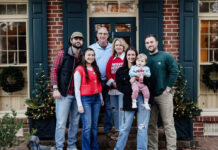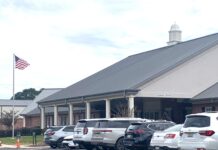Read part 1 at www.cullmantribune.com/2020/05/24/senior-spotlight-remembering-spud-campbell-part-1/.
After World War II, Spud and Bea Campbell moved home to Alabama from San Francisco. In Birmingham, Spud began working on a career in communications. He worked in radio and television in the 1940s.
His son, Steve, said, “He worked at WSGN in Birmingham in the 40s, which was the very beginning. He worked at Alabama’s first public television station. He did all the engineering work but nothing on camera or anything.”
Steve recalled visiting the television station with his father as a child and seeing how television shows were made. By the early 1950s Spud had become a consultant for communications contractors to the federal government.
Steve said, “He went to the South Pacific, Enewetak (Atoll), for the nuclear testing process. He was there for maybe a year or 18 months.”
After he returned from the South Pacific, Spud signed up with Page Communications. There, he worked on the Ballistic Missile Early Warning System in Greenland.
“He hated cold weather! After being torpedoed and sunk above the Arctic Circle in 1945, he just hated cold weather,” said his son. “But, he moved back up to the north of Greenland where it was night for four to five months at a time, and he stayed there for 18 months.”
After Greenland, Spud and the family moved to Washington D.C. where he worked as a consultant for Page Communication and others. In 1962, he was invited to join Radio Free Europe, when Steve was 13 years old.
“He announced to us that we were all moving to Portugal,” said Steve. “I thought, ‘What is Portugal?’ That was the worst thing I ever heard in my life until about a year later when I just fell in love with Portugal.”
Steve credits his father and his influence for leading him to pursue engineering at Georgia Tech.
He shared a story: “When I was in high school, all his friends were engineers basically. The person he actually worked for, Perry Esten (director of engineering for Radio Free Europe), his son came to Portugal to spend the summer. He and I got to know each other and hang around a lot. He was an engineer, and he and I spent the summer together figuring out how to make rockets in Portugal. He and I figured out some way we could build these rockets and engage these people who worked for my dad in their machine shops and so on to build these rockets. We had these people build rockets for us. I think we got our plans from Scientific American in the mid-60s. So, we built these rockets and we said, ‘Well, where can we go to test them?’ There’s a NATO base just outside Lisbon and we thought, ‘Let’s go there and see if we can shoot them off there!’ His dad and my dad made this arrangement with the NATO commander at this NATO Air Force base in Lisbon to shoot these rockets off. We went there the day we were going to do it. He thought these were things that maybe went a couple hundred feet in the air. He asked, ‘What are the range of these rockets?’ We told him that they were about 3,000 to 4,000 feet. He had no idea, so he had to stop air traffic in the area for the whole afternoon while we shot these rockets off. My dad and Perry Esten thought it was pretty funny that we were disrupting the defense of Europe for the afternoon because we had this hobby.”
Spud lived in Portugal for eight years as he moved up the ladder at Radio Free Europe. He lived in Germany, ending up in Munich as the vice president and director of engineering for Radio Free Europe.
Steve laughed, “He lived in Portugal for over seven years and could barely speak a sentence in Portuguese. Then he moved to Germany and started taking German classes, and then he started speaking Portuguese in German class. It’s like all that sunk in but didn’t come out until he was trying to speak another language!”
Spud spent 12 years in Germany before retiring in 1982.
Steve said, “They had been building a house in Cullman because Julian (Spud’s brother) moved there. I think that’s the main reason he moved back to Cullman.”
Spud and Bea lived their last years together in Arkansas with their daughter.
Steve explained, “They ended up living, my parents, my sister, her son and his wife and their two children, all in the same house.”
Bea passed away in 2017 and Spud returned to Cullman a couple of months later.
Steve said, “After my mom died, he didn’t have a lot of deep connections to Arkansas, but he had a lot of friends and family in Cullman. Especially his brother Julian. Julian and he were like quintessential siblings. They hated and loved each other their whole lives.”
Spud had kept his membership to Terri Pines Country Club in Cullman and loved to play golf with his brother.
“He and Julian played golf practically three to four times a week for 30 years almost. He told me once how many miles he had walked. They never used a cart; they always walked. It was some huge number of miles they had walked. Like, two or three times around the world or something at Terri Pines,” Steve said.
He continued, “He basically spent the same amount of time living in Julian’s family for the same amount of time he lived with Julian’s family when he was born. The beginning and the end were all with Julian. It was kind of interesting bookends.”
Both brothers played golf regularly into their 90s. Steve credits walking the course with keeping Julian and Spud young and in great shape.
Steve said, “The boy from Meek got to see the world. Glenn Ferguson (former president of the University of Connecticut) said, ‘Tell me about Meek High School again. What is it that Meek High School has that you don’t even get a degree and now you are the director of engineering for Radio Free Europe? How does that happen?’”
The family will have a memorial service for Spud when restrictions from the current COVID-19 pandemic allow. Spud’s ashes will be placed in the columbarium at Grace Episcopal Church in Cullman with Bea’s. Arrangements for the memorial service will be announced at a later date.
Copyright 2020 Humble Roots, LLC. All Rights Reserved.

